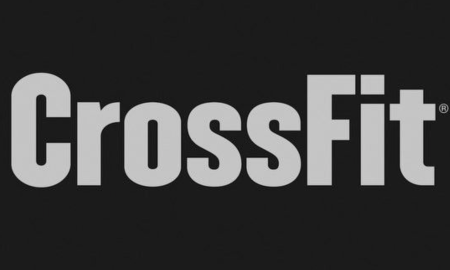
RYGB (Roux-en-Y) or gastric bypass surgery is a bariatric surgery that restricts the amount of food that an individual can eat and limits the absorption of nutrients.
If you’re thinking of opting for this procedure, you should know that apart from preparing yourself for the surgery, you must also be willing to make permanent lifestyle changes. You will also need to follow a strict diet and exercise regime after the surgery to ensure lasting results and prevent health complications.
And if you’re not sure what to expect or the risks associated with it here’s everything you need to know about private gastric band surgery.
Benefits of gastric bypass surgery
The most significant benefit of gastric bypass surgery is that it helps you get rid of the extra weight. This, in turn, reduces the risk of weight-related life-threatening conditions, including:
- Infertility
- Cancer
- Stroke
- type 2 diabetes
- obstructive sleep apnea
- high cholesterol
- high blood pressure
- heart disease
- gastroesophageal reflux disease.
Who qualifies for gastric bypass surgery?
You can opt for weight-loss surgeries, including gastric bypass if
- Your BMI is over 40
- Your BMI is over 35, and you have a weight-related problem like severe sleep apnea, high blood pressure, or type 2 diabetes.
Of course, this doesn’t mean that gastric bypass is suited for everyone who is obese. There are specific medical guidelines that you need to meet. And to make sure that you meet the criteria, you will have to first go for a screening process.
Note that gastric bypass surgery isn’t for you if you can’t make permanent changes to your lifestyle. You might also have to take part in long-term follow-ups that include monitoring your medical conditions, behavior, lifestyle, and nutrition.
Preparing yourself
If you’ve decided to opt for a gastric bypass, you will need to prepare yourself. A few weeks before your surgery, you might have to stop the use of tobacco and start an exercise regime. Right before your surgery, your healthcare provider might restrict your medications and the foods and drinks you can take.
Before your surgery, you will need to pass your nutrition consults, psych evaluation, physician-supervised diet, and pre-operation diet. The night before the surgery, you need to stop eating. You might get anxious or scared at this time, so try to distract yourself by doing something that relaxes you and remind yourself why you decided to opt for a gastric bypass.
Finally, on the day of your surgery, you will be asked not to eat or even drink anything, including water, unless your anesthesiologist or surgeon specifically allows you to.
It’s also best to plan for your post-surgery recovery at this stage. For example, if you think that you’ll need help at home after the surgery, then make sure you arrange it beforehand.
How it works
Gastric bypass is a malabsorptive/restrictive surgery and has two stages.
The first stage involves the creation of a small pouch in the stomach. The surgeon divides the stomach into two – a small part and a much larger part. Then, he performs a process known as stomach stapling, where the small part is stapled or sewn together to make a pouch that can hold up to one cup of food.
As a result of the small stomach, people eat less and feel satiated much more quickly. This part of the surgery is restrictive.
The second stage of the surgery involved a bypass. The surgeon disconnects the small pouch from the rest of your stomach and connects it to the lower part of your small intestine. The food directly passes from the stomach to the lower part of the small intestine, limiting the absorption of calories and nutrients. This is why this part of the surgery is known as malabsorptive.
The procedure
Before your surgery, you will be given anesthesia, but the specifics of your surgery depend on the doctor’s practices and your situation. Most surgeons perform the surgery laparoscopically, where tools are inserted through small incisions in the belly. However, they might also do a laparotomy, which involves a large cut in the middle of the stomach if laparoscopy isn’t possible.
The procedure is done in a hospital and takes a few hours. The recovery time is usually 1-2 days, but it can be longer too.
After the surgery
Post-surgery, you need to follow a liquid diet as your intestines and stomach start to heal. You will be given a diet plan to help you move from liquid to puréed food. Slowly, you will be reintroduced to soft foods before finally moving on to firmer foods.
You will be given mineral and vitamin supplements, including vitamin B-12, calcium, and iron, as well as frequent checkups to make sure there are no problems. You might also undergo changes as a result of the rapid weight loss. In the first 3-6 months after surgery, you might experience body aches, mood changes, hair loss, dry skin, and exhaustion. In some cases, an endoscopic revision of gastric bypass patients might be necessary but try not to stress about that going into the surgery.
Risks of gastric bypass
Like all other surgeries, gastric bypass also has a risk of bleeding, pneumonia, and blood clots. Further specific risks include:
- Dumping syndrome: In this condition, the food makes its way from the stomach to the small intestine very quickly, causing severe diarrhea, lightheadedness, cold sweats, and nausea.
- Leakage: Partially digested food and digestive juices might leak at the point where the stomach and small intestines are connected.
- Malnutrition: Since gastric bypass changes the way the body absorbs nutrients, you might experience different mineral, vitamin, and protein deficiencies.
- Bowel obstruction: Internal hernia can obstruct the small bowel, causing the bowel to protrude within the abdominal cavity.
- Other risks include the inability to swallow liquids and the formation of ulcers.

















Follow Us